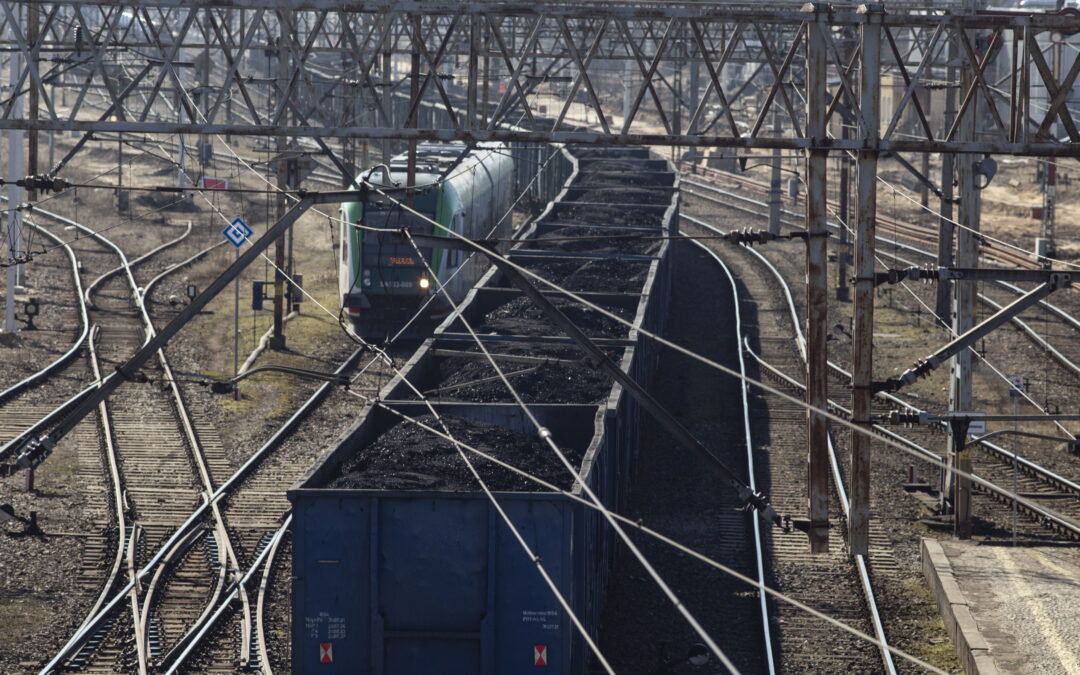The Polish government has approved measures to block the import of coal from Russia. It admits that there are “legal doubts” over a unilateral embargo by a European Union member state, but says that it “cannot wait any longer” for Brussels to act.
Poland has long been weaning itself off Russian gas, with Prime Minister Mateusz Morawiecki recently declaring that the country would this year be “independent from Russian gas for the first time in decades”.
However, it continues to be among the world’s largest buyers of Russian oil and also imports significant amounts of Russian coal: 8.3 million tonnes last year, around 66% of all coal imported to Poland, according to government data collated by fact-checking service Konkret24.
Ministers have made clear that they want to ban this trade, but note that the vast majority of Russian coal is imported by private companies (after state-owned firms were ordered to stop buying it two years ago).
That makes it hard for the government to intervene, as any trade ban would be likely to contravene EU rules. Soon after Russia’s invasion of Ukraine, Morawiecki appealed to the European Commission to give permission for an embargo to be imposed.
However, in the early stages of drafting EU sanctions against Moscow after the invasion of Ukraine, Germany blocked a proposal to ban the import of Russian coal, according to two inside sources cited by Reuters last week.
The vast majority of coal imported into Poland comes from Russia, with experts saying that some of it is actually from separatist-controlled parts of Donbas in Ukraine and labelled as Russian https://t.co/0U9rTXwGiY pic.twitter.com/w1Eg9ovRwR
— Notes from Poland 🇵🇱 (@notesfrompoland) March 2, 2022
With Brussels failing to act – and with the Polish domestic opposition criticising the government for failing to stop coal imports from Russia – the cabinet today decided to act unilaterally.
“We have prepared regulations that block the import of coal from Russia,” announced government spokesman Piotr Müller following a meeting of the cabinet, reports the Polish Press Agency (PAP)
Müller added that the government “regrets” the fact that “the EU has not decided to take these actions” itself. He also admitted that Poland’s decision “may raise…justified legal doubts, but we cannot wait any longer for the EU’s reaction on this issue”.
There is now a risk that Poland could face legal action at the Court of Justice of the European Union, said the spokesman. “But we do not want to allow such imports to continue on Polish territory.”
Noting that the coal is mainly imported by private companies, Müller said that the government “would like to prevent this” and would introduce financial penalties for firms that violate the planned ban.
The legislative package approved by the cabinet today – which now passes to parliament – would also allow “the assets of entities that contribute to supporting the Russian invasion of independent Ukraine” to be frozen, said Müller. These measures would go even further than current EU sanctions, he added.
The spokesman noted, however, that confiscating such assets, rather than simply freezing them, would require an amendment to the constitution. That cannot be done without opposition support, and Müller appealed to “the whole political class” to help introduce such changes, reports RMF24.
Main image credit: Agnieszka Sadowska/ Agencja Wyborcza.pl

Daniel Tilles is editor-in-chief of Notes from Poland. He has written on Polish affairs for a wide range of publications, including Foreign Policy, POLITICO Europe, EUobserver and Dziennik Gazeta Prawna.




















